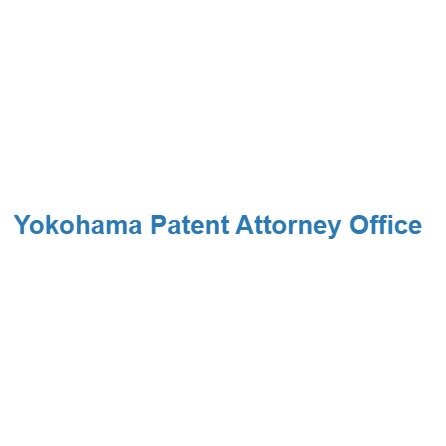Best Copyright Lawyers in Kanagawa
Share your needs with us, get contacted by law firms.
Free. Takes 2 min.
List of the best lawyers in Kanagawa, Japan
About Copyright Law in Kanagawa, Japan
Copyright law in Kanagawa, Japan, functions under the broader jurisdiction of Japanese copyright law, which is governed by the Copyright Act of Japan. This legislation protects the rights of creators over their original works, ensuring they can control and benefit from their works. While Kanagawa adheres to national law, specific regional economic activities, such as the presence of major digital media companies and cultural industries, make the application of copyright laws particularly significant here. The Japanese Copyright Act covers literary works, music, art, video content, and digital products, reflecting a robust framework designed to encourage creativity and innovation. Compliance with international treaties like the Berne Convention further aligns Japanese copyright standards with global norms.
Why You May Need a Lawyer
There are several scenarios where seeking legal advice on copyright matters may be crucial. These include launching a business that will use copyrighted materials, publishing or distributing content that could potentially infringe on existing copyrights, or establishing licensing agreements. Additionally, if you are a creator seeking to protect your work from unauthorized use or need guidance on how to commercialize your intellectual property, a lawyer can offer invaluable assistance. Disputes over copyright ownership or infringement, both potential and alleged, comprise another common reason for seeking legal intervention. Navigating these legal challenges with professional guidance can prevent costly litigation or infringement penalties.
Local Laws Overview
In Kanagawa, while national copyright laws apply, local economic factors influence how these laws are often applied. The region is home to various creative industries, including digital media, which are particularly vigilant about protecting intellectual property rights. Understanding local business norms and regional enforcement practices is crucial for individuals and companies. The Japan Copyright Office, along with local government offices in Kanagawa, plays an active role in educating the public and offering guidance on compliance with copyright regulations. Furthermore, the prefecture participates in initiatives promoting fair use and copyright awareness, aligning with broader efforts to enhance the understanding and application of these laws.
Frequently Asked Questions
What is considered protected under copyright law?
Items such as books, music, films, software, and other original works that involve creative expression are protected.
Can I use an image I found online for my local business?
Using an image without permission could infringe copyright laws unless it's labeled for reuse or falls under a specific legal exception.
How long does copyright protection last in Japan?
Generally, copyright protection lasts for the life of the author plus 70 years after their death.
Is registration of copyright necessary for protection?
No, registration is not required; the act of creation confers copyright protection.
What if I independently create something similar to a copyrighted work?
If your creation is truly independent and a result of your own efforts, it is typically not considered infringement.
How can I enforce my copyright in Kanagawa?
You may send a cease-and-desist letter, file a lawsuit, or request mediation through local authorities or legal counsel.
What are my rights as a copyright holder?
You have the exclusive rights to reproduce, distribute, display, and authorize others to use your work.
What constitutes copyright infringement?
Infringement typically involves unauthorized use of a copyrighted work in ways that violate the exclusive rights granted to the copyright owner.
Can I transfer my copyright to someone else?
Yes, copyrights can generally be transferred via assignments or licensing agreements.
What is 'fair use' and does it apply in Japan?
Japan does not have a 'fair use' doctrine like some countries; however, certain limited exceptions for educational or other public interest purposes apply.
Additional Resources
If you are seeking more information or assistance with copyright issues, here are some resources and organizations that can be helpful:
- Japan Copyright Office: Provides comprehensive information about copyright law and enforcement.
- Ministry of Economy, Trade, and Industry (METI): Offers guidance on intellectual property rights in Japan.
- JASRAC (Japanese Society for Rights of Authors, Composers, and Publishers): Manages music copyrights in Japan.
- Kanagawa Prefectural Government: Can assist with regional inquiries and local copyright compliance.
- Japanese Federation of the Bar Associations: Offers legal advice and can help locate a qualified attorney.
Next Steps
If you need legal assistance in copyright matters, it is advisable to consult with a qualified lawyer who specializes in intellectual property rights. Begin by contacting a local law firm or using resources from the Japanese Federation of the Bar Associations to find an expert in copyright law. Prepare a detailed account of your situation, gather relevant documentation of your works or issues at hand, and outline clearly the assistance you require. Legal counsel will be able to provide specific advice tailored to your needs, ensuring your rights are upheld and your creative endeavors can proceed uninhibited.
Lawzana helps you find the best lawyers and law firms in Kanagawa through a curated and pre-screened list of qualified legal professionals. Our platform offers rankings and detailed profiles of attorneys and law firms, allowing you to compare based on practice areas, including Copyright, experience, and client feedback.
Each profile includes a description of the firm's areas of practice, client reviews, team members and partners, year of establishment, spoken languages, office locations, contact information, social media presence, and any published articles or resources. Most firms on our platform speak English and are experienced in both local and international legal matters.
Get a quote from top-rated law firms in Kanagawa, Japan — quickly, securely, and without unnecessary hassle.
Disclaimer:
The information provided on this page is for general informational purposes only and does not constitute legal advice. While we strive to ensure the accuracy and relevance of the content, legal information may change over time, and interpretations of the law can vary. You should always consult with a qualified legal professional for advice specific to your situation.
We disclaim all liability for actions taken or not taken based on the content of this page. If you believe any information is incorrect or outdated, please contact us, and we will review and update it where appropriate.









